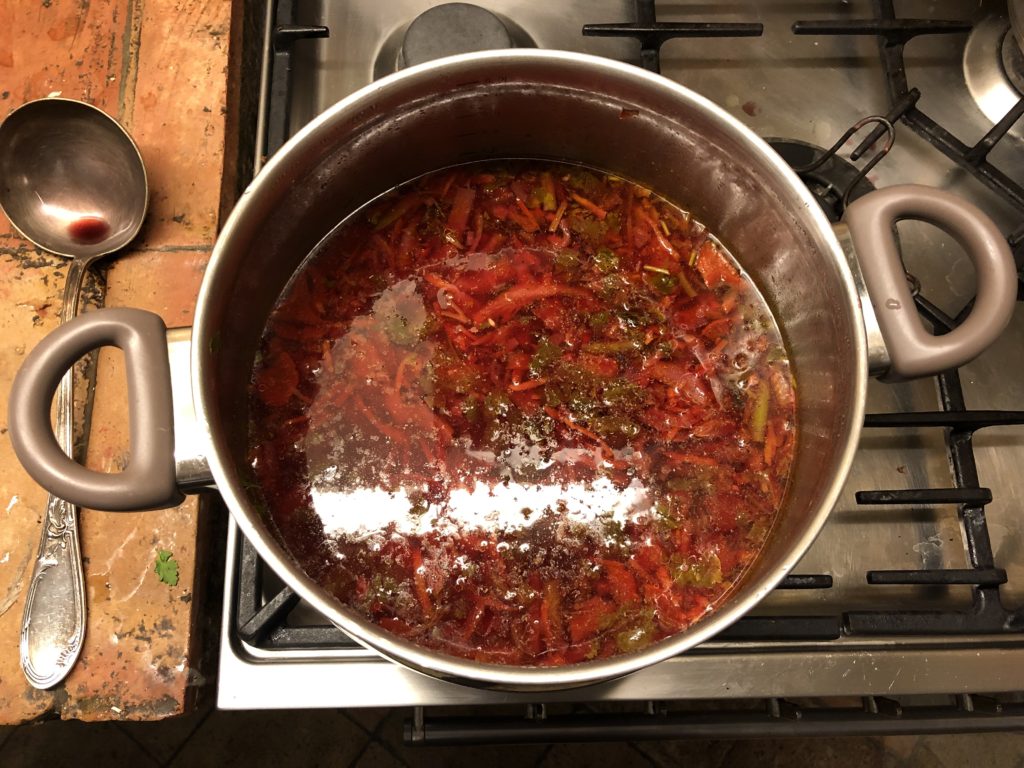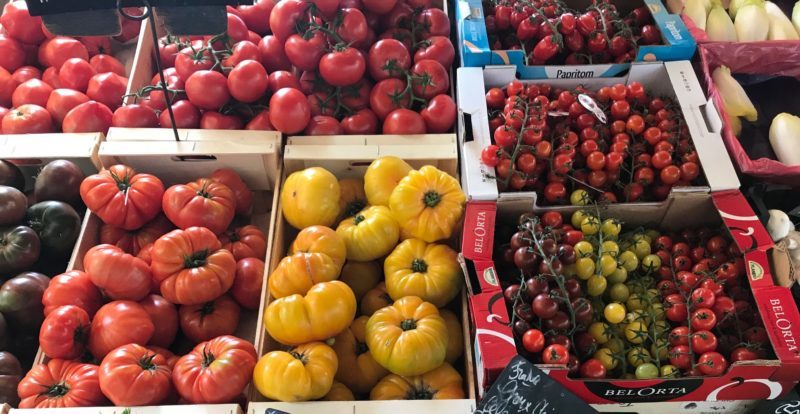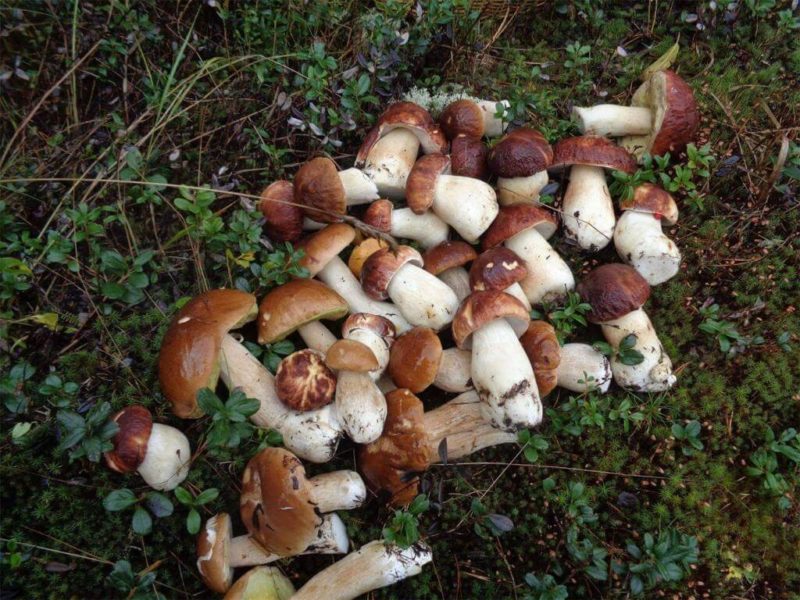
I would like to put two soft signs in this magic word “Borscht”, but, unfortunately, the most liberal reform of Khrushchev of “spelling words like you hear them” did not materialize and we have to abide by a dictionary. It’s great that now he himself corrects our mistakes. It is well known that each household has its own soup, and each soup has its own history.
We also have ours – from Cadiere. Its roots come from the Novorossiysk borscht of grandfather Vitya and his mother Anastasia, grandmother Toya from Maykop and grandmother Vera’s from Siberia (where beetroot actually grew). Our soup combined traditional recipes and added the richness of Provence and reflected in passions and modern geopolitical realities.
It is without lard – an anathema for grandfather Vitya and grandmother Tonya. The conflict, which the leaders of two of the fifteen sovereign countries that have arisen on the ruins of their homeland are using to extend their leadership, has deprived us of this product. Which is probably even better for 110-year-olds. Provence added thyme. Maykop (or Tuscany) – white and red beans. Hunting – wild meat as the basis of the broth.
Borscht has two advantages :
- we make it together
- you can eat it often and for a long time – for breakfast (st), lunch (steel), afternoon snack (st), appertiv (steel and guests) and dinner (st)
The foundation of borscht is cabbage and beets. The remaining components are selected according to taste and according to the season.
We cook the broth from boar brisket with provencal onion, bay leaf, celery root and bouquet garni. You can cook broth from beef, lean pork, lamb, roe deer, deer, moose. Great borsch can be obtained from wild goose and tour. We tried bear and a buffalo – then we stopped trying.
- Cooking broth takes about 2 hours depending on the meat. It is not necessary to boil on high heat, rather weak, but with constant gurgling. Put the meat in cold water. When the onion is cooked, remove it.
- While preparing the broth you need to cut vegetables and root vegetables. XXX helps us a lot – quick, beautiful, raffinate, but dangerous! When al’ is busy, st uses a traditional cook’s knife – a bit more brutal, less symmetrical, but still tasty.
- We cut into thin not very long slices the beets, cabbage, potatoes, peppers (which in Russian is called Bulgarian, but which in Provence exists under many variations), tomatoes.
- Fry easily until golden onions and carrots (separately), in light olive oil. Soak the beans for several hours before cooking.
- Put the beetroot in the broth for 30 minutes until the latter is ready ( when the meat easily moves away from the bone – it is a sign of readiness). When the meat is ready – remove it and leave to cool. When cool – separate the flesh from the bones and cut into small pieces. We will return it to the fully prepared soup.
- Add cabbage and beans. In winter we cook borsch with dried porcini mushrooms. They should be soaked for a couple of hours, cut and added to the broth along with the cabbage.
- After another 15 minutes – add peppers, potatoes, pasted carrots and onions, green beans (if season). After another ten – tomatoes and tomato paste (the ratio depends on the season – the better the tomatoes, the more of them you should add).
- And after another five minutes – seasonings. It consists of Provencal garlic, crushed in a special device, finely chopped parsley, one chili pepper (fresh or dry, depending on the season), dry thyme and salt.
- Then we leave the soup “to finish” for an hour on a hot stove (turned off). After that, remove the chili pepper and put the soup in a pot with to breathe fresh air overnight.
In the morning it will be ready. In the hot season, instead of putting it outside we put it in the wine cellar.
One of the remarkable properties of borscht is the improvement of taste over time. The more time passes, the tastier it becomes. But on the sixth day it is better to part with it.
Borscht has no strict proportions, it all depends on the quality of the ingredients, sometimes you can do without beans or pepper, and only add a small bit of tomato or potatoes. Approximate components of the Cadiere borscht for a large soup pan: 500-700 grams of “borsch boar” (30-40 kg), two medium-sized beets, one onion for broth and one onion for roasting, two large carrots, a quarter of a head of white cabbage, two ripe tomatoes, two “Bulgarian” peppers, a handful of beans, half a glass of tomato paste, four cloves of garlic, one chili pepper, a bunch of parsley, three pinches of thyme, black pepper, and salt.
Borscht provides almost unlimited possibilities for finding culinary and alcoholic combinations. Of course, our first choice is the Provençal rosé, and the borscht successfully combines both the almost transparent Chateau Coussin and the powerful saturated Bandol Domain de La Beguide.
In the winter season, the rich red wines of Bandol and the Rhone valley, for example, XXXXX, go well with the Cadiere borscht. Chilled to 12 degrees vodka will not spoil any borscht, including Cadiere’s, although it may create a nostalgic feeling for a piece of Major’s bacon from Bessarabka. The Provencal Marc de Provence can replace it as a pre-borsché aperitif, but does not have the necessary softness to accompany it as a table drink. The morning plate of borscht goes well with black tea with lemon and an aperitif spoon at 18-00 with a glass of Blanc de Blancs champagne.
Borscht is connected with many funny stories. One has to do with the elections to the USSR Supreme Council, when St set the borscht to go and went to vote for Chernenko, expecting to quickly fulfill his civic duty, eat a couple of scarce sandwiches in the buffet and return to the darling miracle, but unexpectedly met his comrades and stayed at the buffet, discussing the prospects of the Soviet power in the coming decade. By the time he returned home, there was not a single drop of broth left in the pan, but the entrance was filled with black smoke with onion-celery flavor. But everything worked out.

